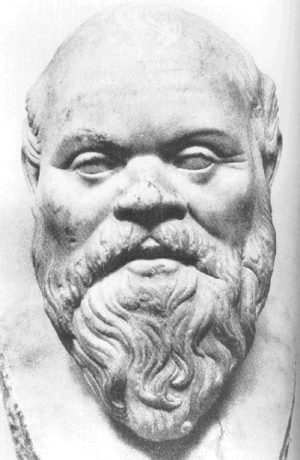© Domenic Marbaniang, December 19, 2007.
“All men by nature desire to know,” said Aristotle in his Metaphysics. Curiosity is instinctive to man. Anxiety, boredom, frustration, and bewilderment often accompany one’s failure to know what one wants to know. If there are shocks that upset the mind, then there are also shocks that excite the mind. Unexpected pleasures are as shocking as unexpected pains, though with opposite results. Therefore, when the intuition senses flashes of insight amidst the confusion and obstruction of the mind, the pleasure is sublime. That is why religion is so personal to believers while absurdity and vexation torture the skeptics.
But belief cannot be recklessly entertained, for beliefs match their consequences; and if beliefs are false, the consequences can be disastrous. However, one can’t avoid belief, since it is the ground of all knowledge. For instance, in order to reason logically one needs to first believe in reason and logic; similarly, in order to know something about the world, one must at least believe there is something out there. There are certain situations, however, where one has nothing but belief as one’s source of knowledge. For instance, anyone who travels a lot knows times when one has to simply believe others for directions and guidance to the desired destination. Yet, when it comes to beliefs about ultimate issues like the origin and destiny of the universe, God, freedom, values, etc, one cannot just quote exclusive instances as explanations for an unexamined life of belief. One needs to look at reality intently, intensely, intentionally; one must be serious. The “laughing philosopher” is a philosophical mistake unless the philosopher is either mad or “enlightened”. The laughing philosopher must suffer the toothache to stop laughing, for it is not pleasure but pain that awakens the philosopher within – Buddha stopped laughing when he saw the four scenes of suffering; Plato stopped laughing when Socrates drank the hemlock. Truth is more important to the rational human than water to the thirsty, or else David’s heroes wouldn’t have risked their lives to get their king water from the well of Bethlehem, nor would have David, seeing its value, poured it out unto God without drinking of it (2 Samuel 23: 14-17).
“All men by nature desire to know,” said Aristotle in his Metaphysics. Curiosity is instinctive to man. Anxiety, boredom, frustration, and bewilderment often accompany one’s failure to know what one wants to know. If there are shocks that upset the mind, then there are also shocks that excite the mind. Unexpected pleasures are as shocking as unexpected pains, though with opposite results. Therefore, when the intuition senses flashes of insight amidst the confusion and obstruction of the mind, the pleasure is sublime. That is why religion is so personal to believers while absurdity and vexation torture the skeptics.
But belief cannot be recklessly entertained, for beliefs match their consequences; and if beliefs are false, the consequences can be disastrous. However, one can’t avoid belief, since it is the ground of all knowledge. For instance, in order to reason logically one needs to first believe in reason and logic; similarly, in order to know something about the world, one must at least believe there is something out there. There are certain situations, however, where one has nothing but belief as one’s source of knowledge. For instance, anyone who travels a lot knows times when one has to simply believe others for directions and guidance to the desired destination. Yet, when it comes to beliefs about ultimate issues like the origin and destiny of the universe, God, freedom, values, etc, one cannot just quote exclusive instances as explanations for an unexamined life of belief. One needs to look at reality intently, intensely, intentionally; one must be serious. The “laughing philosopher” is a philosophical mistake unless the philosopher is either mad or “enlightened”. The laughing philosopher must suffer the toothache to stop laughing, for it is not pleasure but pain that awakens the philosopher within – Buddha stopped laughing when he saw the four scenes of suffering; Plato stopped laughing when Socrates drank the hemlock. Truth is more important to the rational human than water to the thirsty, or else David’s heroes wouldn’t have risked their lives to get their king water from the well of Bethlehem, nor would have David, seeing its value, poured it out unto God without drinking of it (2 Samuel 23: 14-17).
© Domenic Marbaniang, December 19, 2007.

Comments
Post a Comment